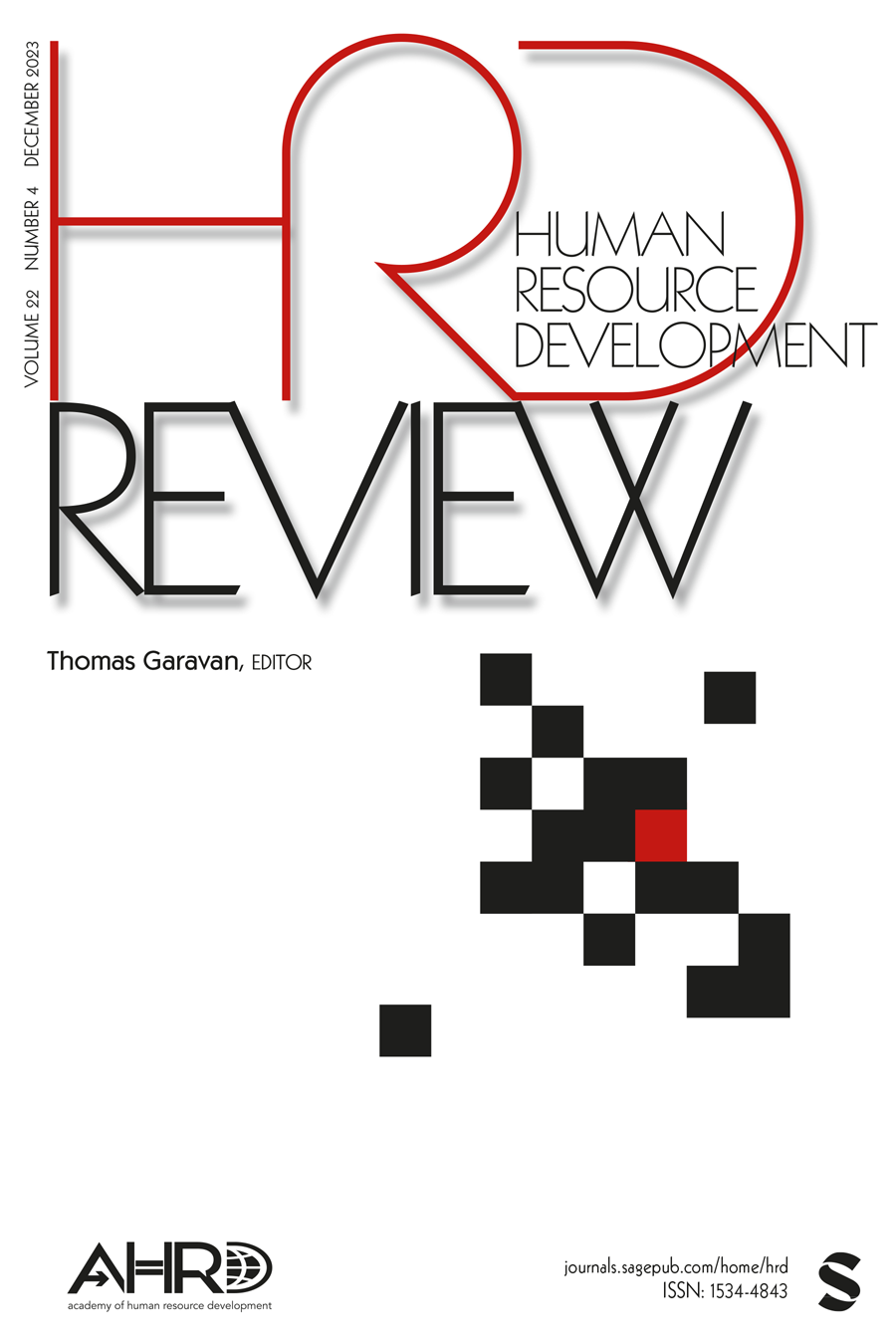The Power of Ethics and Standards When the Scholarly System Fails
IF 4.6
3区 管理学
Q1 MANAGEMENT
引用次数: 4
Abstract
Scholarly published work to understand world events is a potent force in learning to improve the human condition. However, which points or criteria are important in interpreting these events are often less than clear. Given the significant societal changing events of the past year that challenge human dignity and values (e.g., pandemic, storming of US Capitol, Black Lives Matter), Human Resource Development (HRD) or cognate field scholars have a responsibility to study these phenomena in ways that uphold the ethics and standards of academic research (Russ-Eft, 2018; Werner, 2016). Whether a concept study or probabilistic analysis, journal articles are academia’s venue, which serve as historical markers to further shape the identity of the discipline. A recent peer-reviewed paper regarding a World War II incident has become a wake-up call that challenges the academic integrity of peer-reviewed articles and journals. In response to this situation, we examine the relevance of this case to AHRD Standards on Ethics and illuminate how research integrity, ethics, and rigor are important and helpful for interpreting a major or series of world event.学术制度失灵时的伦理规范力量
为了解世界大事而出版的学术著作是学习改善人类状况的一股强大力量。然而,在解释这些事件时,哪些点或标准是重要的,往往不太清楚。鉴于过去一年中挑战人类尊严和价值观的重大社会变化事件(例如,流行病,美国国会大厦风暴,黑人的生命也重要),人力资源开发(HRD)或相关领域的学者有责任以维护学术研究的道德和标准的方式研究这些现象(Russ-Eft, 2018;维尔纳,2016)。无论是概念研究还是概率分析,期刊文章都是学术界的场所,是进一步塑造学科身份的历史标志。最近一篇关于第二次世界大战事件的同行评议论文为同行评议文章和期刊的学术诚信敲响了警钟。针对这种情况,我们研究了该案例与AHRD伦理标准的相关性,并阐明了研究诚信、伦理和严谨性对解释重大或一系列世界事件的重要性和帮助。
本文章由计算机程序翻译,如有差异,请以英文原文为准。
求助全文
约1分钟内获得全文
求助全文
来源期刊

Human Resource Development Review
MANAGEMENT-
CiteScore
9.60
自引率
17.20%
发文量
35
期刊介绍:
As described elsewhere, Human Resource Development Review is a theory development journal for scholars of human resource development and related disciplines. Human Resource Development Review publishes articles that make theoretical contributions on theory development, foundations of HRD, theory building methods, and integrative reviews of the relevant literature. Papers whose central focus is empirical findings, including empirical method and design are not considered for publication in Human Resource Development Review. This journal encourages submissions that provide new theoretical insights to advance our understanding of human resource development and related disciplines. Such papers may include syntheses of existing bodies of theory, new substantive theories, exploratory conceptual models, taxonomies and typology developed as foundations for theory, treatises in formal theory construction, papers on the history of theory, critique of theory that includes alternative research propositions, metatheory, and integrative literature reviews with strong theoretical implications. Papers addressing foundations of HRD might address philosophies of HRD, historical foundations, definitions of the field, conceptual organization of the field, and ethical foundations. Human Resource Development Review takes a multi-paradigm view of theory building so submissions from different paradigms are encouraged.
 求助内容:
求助内容: 应助结果提醒方式:
应助结果提醒方式:


